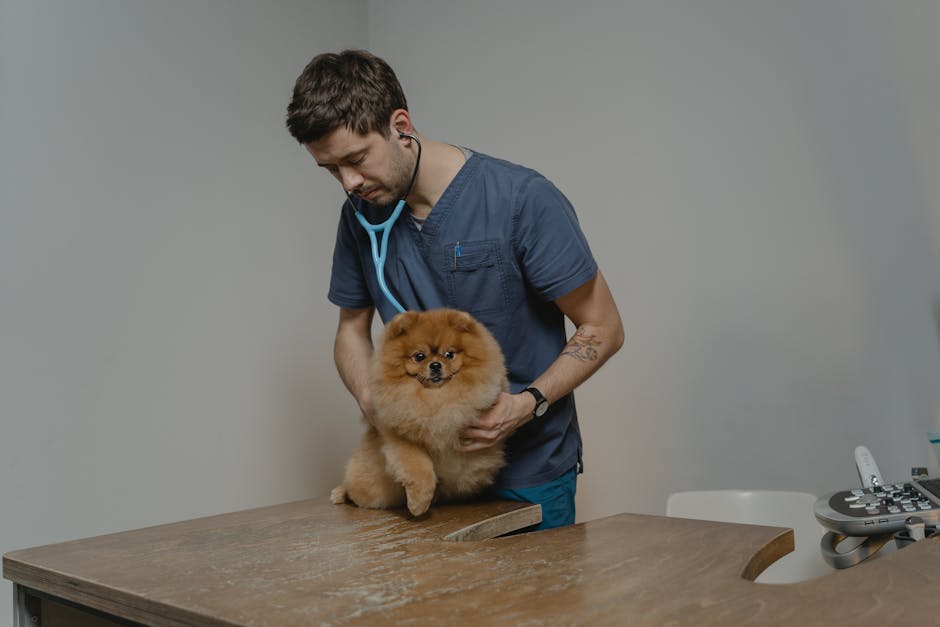Pet ownership is a rewarding journey filled with unconditional love and companionship. Maintaining your animal companion’s well-being requires vigilance and an understanding of when to seek professional veterinary attention. Recognizing subtle changes in your pet’s behavior or physical state is crucial for early intervention and optimal health outcomes. This article delves into the various situations prompting a visit to the veterinarian, emphasizing the importance of proactive care.
Understanding Your Pet’s Baseline is Paramount
Every pet has its unique personality and physical attributes. Before discussing specific warning signs, it’s vital to know your pet’s typical behavior. This baseline allows you to spot deviations from the norm, which may indicate underlying health concerns. Pay attention to their appetite, energy levels, bowel and bladder habits, sleep patterns, and playfulness. A thorough understanding of your pet’s everyday routine will enable you to recognize significant changes more readily.
Significant Changes in Appetite and Thirst
A noticeable alteration in appetite whether excessive hunger or complete loss of interest in food can signify numerous conditions. Similarly, a dramatic increase or decrease in thirst warrants veterinary attention. These shifts could indicate underlying diseases like diabetes, kidney problems, or even infections. Alongside changes in appetite, monitor the consistency and volume of your pet’s stool. Any drastic shifts in these aspects are cause for concern.
Altered Elimination Patterns: A Crucial Indicator
Abnormalities in bowel or bladder function are significant indicators that require immediate veterinary consultation. Constipation, diarrhea, or blood in the stool or urine can signal serious issues such as infections, intestinal parasites, or even more complex conditions. Sudden changes in urination frequency, volume, or even straining during urination are also important indicators.
Changes in Energy Levels and Activity
A sudden drop or surge in energy levels can be indicative of illness. If your playful companion becomes lethargic or refuses to engage in their usual activities, it necessitates an examination. Similarly, an unusually high level of energy, accompanied by restlessness or hyperactivity, could point to a medical condition.
Abnormal Physical Observations: A Vital Sign
Regular physical examinations are essential for pet owners. Vigilantly observe your pet for any changes in their physical appearance. Look for unexplained lumps or bumps, skin irritation, hair loss, or any unusual discharge from eyes, ears, or nose. A change in posture, difficulty breathing, or labored movements are also critical signs demanding veterinary intervention.
Behavioral Alterations: Recognizing Subtle Shifts
Beyond physical changes, observe alterations in your pet’s demeanor and behavior. Anxiety, aggression, fearfulness, or sudden changes in vocalization, like excessive barking or whimpering, could indicate pain, discomfort, or stress. Sudden fearfulness or withdrawal from their usual routines warrants attention.
Pain and Discomfort: A Universal Signal
Recognizing pain in animals requires careful observation. Licking or chewing at a specific body part, reluctance to move, or vocalization are strong indicators of discomfort. Any sign of distress should not be ignored. Your pet may not be able to articulate the source of their discomfort, hence, understanding subtle changes becomes crucial.
Injuries: Prompt Attention Is Essential
Accidents happen. If your pet sustains an injury, like a laceration, fracture, or a fall, immediate veterinary care is paramount. Even seemingly minor injuries can lead to severe complications if left untreated. Promptly seek veterinary help for any suspected injuries.
Recurring or Persistent Symptoms: Addressing the Root Cause
When symptoms persist or recur, consulting a veterinarian is essential. Don’t assume that a mild symptom will resolve on its own. Repeated or prolonged issues require medical investigation to determine the underlying cause and ensure appropriate treatment.
Addressing Vaccinations and Preventative Care
Staying current on vaccinations and routine preventative care plays a crucial role in maintaining your pet’s health. Vaccinations protect against various diseases, and regular check-ups allow for early detection of potential health problems. Consistency in these aspects is vital for long-term well-being.
Choosing the Right Veterinarian
Selecting a qualified and compassionate veterinarian is crucial. Consider factors like their experience with your pet’s breed or species, their approach to treatment, and their accessibility. A good rapport with your veterinarian is vital for open communication and trust.
Conclusion: Proactive Care for a Healthy Companion
Ultimately, recognizing the subtle signs of illness or injury in your pet allows for early intervention and optimal outcomes. This article has highlighted diverse situations prompting a veterinary visit, emphasizing the importance of proactive care for a healthy and happy companion. Remember, your pet’s well-being is paramount, and by diligently observing their behavior and physical state, you can contribute significantly to their long and fulfilling life.
